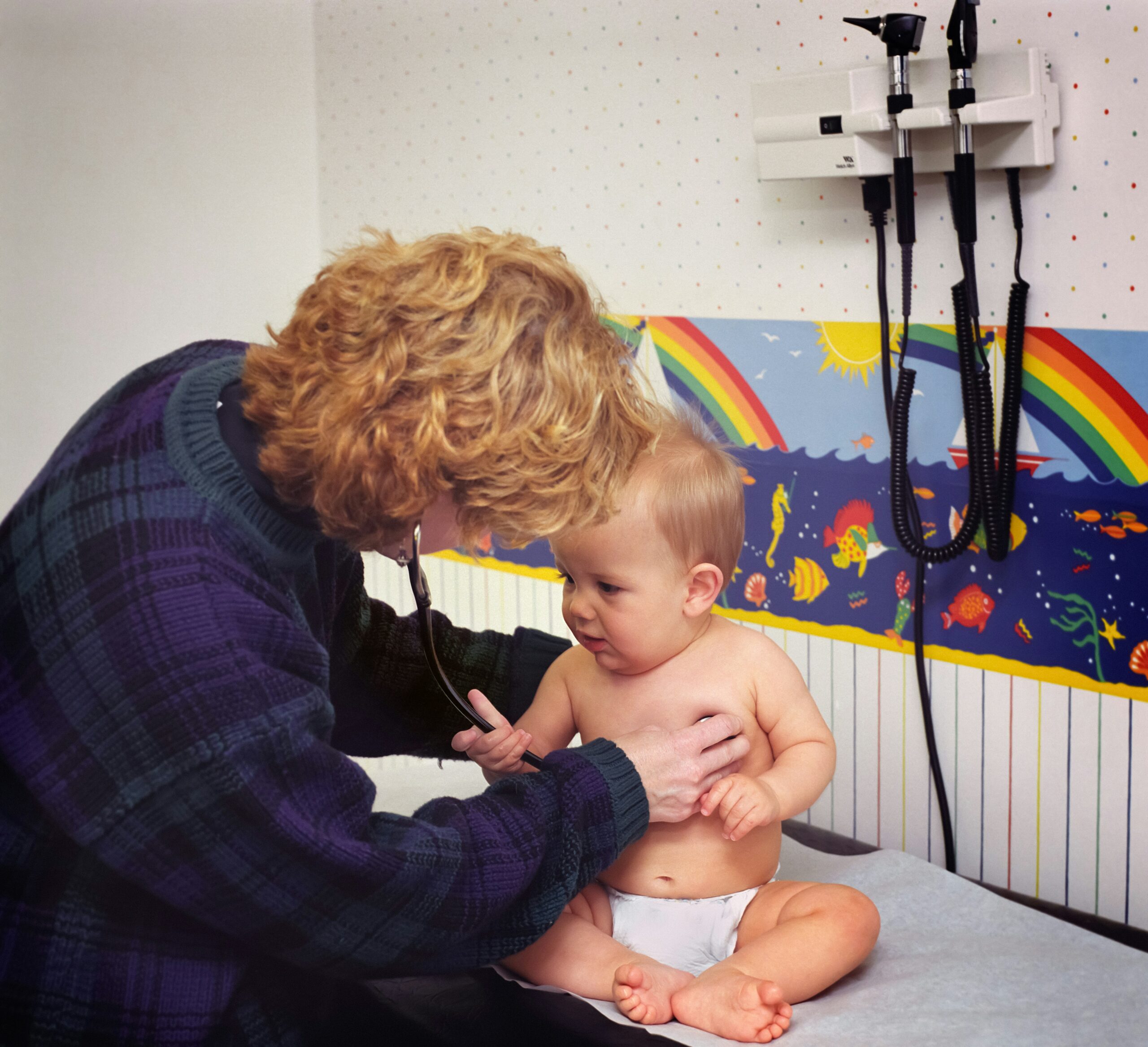From the moment a newborn takes their first breath, fresh anxieties swirl for parents: Is their size on track? Are those nighttime coughs harmless or a warning sign? Should vaccination schedules feel like a maze? Suddenly, parents must grasp not just the joys but the delicate science of childhood health. Here emerges the pediatrician—an unwavering, medically expert companion who translates complexity into reassurance. Pediatricians, ever-present from infancy to adolescence, offer clarity when confusion abounds, blending cutting-edge clinical knowledge with gentle support. Expect answers to the unspoken questions: How do you spot worrying symptoms? Who steers you through feeding concerns, developmental speed bumps, or sudden illnesses? This exploration will unravel the pediatrician’s unique training, the reality of their daily roles, the range of care environments—private office, hospital ward, telehealth call—and why their partnership is irreplaceable for childhood health. Discover how personalized medical monitoring, prevention strategies, emotional guidance, and interprofessional teamwork knit together a child’s health journey.
The Pediatrician’s Role: Science and Solidarity in Everyday Family Life
What does it mean for a child to have a pediatrician, rather than a generalist doctor? Far more than just diagnosing and treating illnesses, the pediatrician stands at the crossroad of prevention, early intervention, and lifelong guidance. Each routine checkup is layered with purpose: measuring growth parameters (think weight, height, and head circumference), meticulously charted against pediatric age-specific reference curves; performing developmental screenings for motor coordination, speech, and sensory function; and delivering immunizations based on rigorous, updated schedules. These early interventions enable the pediatrician to detect subtle signs—a faltering appetite, unexplained fever, delays in crawling or talking—that could indicate deeper concerns.
But the influence of the pediatrician stretches further. Imagine walking into an office uncertain if your toddler’s rash matters or if repeated tantrums signal underlying distress. The pediatrician’s response is rarely a mere prescription; instead, expect a tailored explanation, grounded in scientific evidence but communicated in clear, relatable terms. For feeding issues, pediatricians supply nutritional roadmaps, adapting advice to each child’s unique needs—whether the concern is picky eating, food allergies, or breastfeeding trouble.
Frequently, parents hesitate to consult for fear of “overreacting”—yet pediatricians encourage questions, however small. Sleep problems, behavioral shifts, and recurrent coughs are not trivial. Instinct is valued; vigilance is embraced without judgment. The pediatrician is not only a medical detective but a steadfast coach, foreseeing family needs before a crisis hits.
Pediatrician Versus Family Doctor: Delineating Expertise
Why seek out a pediatrician specifically, rather than a family doctor? The answer lies in specialization. Pediatricians invest years after medical school in highly focused training: mastering childhood infectious diseases, uncovering rare genetic syndromes, and interpreting developing organ systems that behave fundamentally differently from those of adults. Subtle symptoms—a blue tinge to the lips, stunted language milestones, erratic growth curves—may go unnoticed to the untrained eye yet ring alarm bells for the pediatrician.
Within pediatrics, clinical reasoning is shaped by pediatric semiology; for example, recognizing that a fever in a newborn is an emergency worthy of immediate action, while in an older child it often signals a self-limiting illness. From administering childhood vaccinations to crafting management plans for asthma or juvenile diabetes, pediatricians combine medical knowledge with developmental psychology. When primary care questions spill into complex terrain—persistent headaches, social withdrawal, chronic cough—the pediatrician collaborates with, or refers to, a multidisciplinary network.
For parents pondering, “Should I consult the family doctor or contact the pediatrician?”—the answer is nuanced. Routine ailments and minor injuries may be addressed in general practice, but overt or prolonged concerns call for the pediatrician’s focused expertise.
Personalized Medical Surveillance: Routine but Never Ordinary
What unfolds during a pediatrician appointment? Expect a structured—but individualized—encounter. Newborns are seen within days of birth, then monthly across the first months of life, with regularity decreasing as the child matures. At each stage, the pediatrician meticulously records growth patterns, assesses language and motor development, and screens for vision and hearing anomalies.
Vaccination remains a pillar. The pediatrician explains not only the scientific rationale—herd immunity, the protection of vulnerable children, diminishing incidence of diseases like measles—but also practicalities: timelines, side effects, what to watch for at home. Parents concerned about vaccine safety receive clear, balanced perspectives, supported by global scientific consensus and adapted to their particular contexts.
Everyday concerns—disrupted sleep, reluctance around vegetables, or bedwetting—receive equally rigorous attention. Pediatricians evaluate both physical and psychological aspects, acknowledging family stressors or changing routines. Practical plans, not lectures, emerge from these conversations, supporting parental autonomy while providing up-to-date information.
Specialized Pediatric Care: Subspecialties and Collaborative Networks
Some health paths require even deeper expertise. Pediatricians may subspecialize: think neonatology for fragile newborns, pediatric cardiology for congenital heart conditions, pediatric endocrinology for growth disorders, or child psychiatry for behavioral and mood concerns. Each of these areas calls for advanced diagnostic acumen and access to sophisticated technology.
Complex conditions often demand multidisciplinary teamwork—a unique hallmark of pediatric medicine. A child with developmental delay, for instance, may see a pediatrician, neurologist, speech therapist, and occupational therapist, all connected through shared health records and regular communication. For emotional and social difficulties, collaboration with mental health professionals ensures that care remains comprehensive and child-centered.
Innovation is not absent from the landscape. The rise of telemedicine empowers pediatricians to offer triage, re-assess chronic conditions, and support families remotely. While digital care offers unmatched convenience—reducing unnecessary commutes, increasing speed of access—parents are reassured: face-to-face examination still matters, especially for infants and acute symptoms.
Access, Equity, and the Pathways to Consultation
Barriers to pediatric care—cost, distance, lack of information—can undermine even the best-intentioned parents. In many health systems, public insurance or community clinics bridge these gaps, allowing direct access to pediatricians for routine checkups, immunizations, and even urgent assessments. Telehealth extends reach even further, provided the pediatrician is recognized by local health authorities.
The financial aspect often surfaces as a source of concern. Pediatrician consultations are typically reimbursed, partially or fully, depending on insurance coverage and location. Essential checkups (especially in early childhood) may be entirely covered. Transparency around costs—whether for in-office visits, telemedicine, or specialist referrals—enables families to plan ahead, choose wisely, and avoid surprises.
Emotional Navigation: Trust, Transparency, and Lasting Support
For many, the value of the pediatrician is not simply clinical, but relational. Trust is built—appointment after appointment—on precise records, clear dialogue, and nonjudgmental responses to each doubt. Questions are welcomed, anxieties are treated with empathy, and cultural, social, or parenting styles are respected.
The pediatrician does more than monitor milestones or prescribe antibiotics. They document each encounter in a comprehensive, portable health record, coordinating with allied professionals—speech therapists, dietitians, psychologists, and, when relevant, family doctors. This integrated approach guards against missed information, ensures follow-up, and strengthens health outcomes.
Current Challenges and New Horizons in Pediatric Care
Modern pediatrics is not without its puzzles. Specialist shortages trouble many regions, while cases of childhood obesity, allergies, and neurodevelopmental disorders such as autism spectrum or ADHD are on the rise. Cultural expectations, accelerated by digital health innovations, press for short waiting times, wide availability, and a blend of in-person and remote support.
Parents face a cascade of advice: some scientifically sound, others less so. The pediatrician stands as a mediator—balancing conventional medicine with cautious explanations around complementary therapies (such as pediatric osteopathy or homeopathy), always emphasizing the irreplaceable value of thorough clinical assessment.
The health landscape shifts, yet some constants remain. Pediatricians continue to champion prevention, promote mental and relational health, and expand access through new tools.
Key Takeaways
- Pediatricians are expert guides, combining in-depth medical science with empathy to support every phase of child development.
- Personalized monitoring—growth, immunizations, developmental checks, and emotional well-being—enables early intervention and meticulous prevention.
- Specialized training in pediatrics ensures nuanced care, especially for conditions that differ fundamentally from adult medicine.
- Collaboration across generalists and specialists, transparent health records, and respectful family dialogue underpin the best outcomes.
- Children benefit from a broad network, with access points via private practices, hospitals, community clinics, and the expanding world of telemedicine.
- Parents can rely on their pediatrician to unravel the challenges of nutrition, sleep, chronic illness, and sudden emergencies, always grounded in evidence-based guidance.
- Practical concerns—insurance, appointment rhythms, specialist referrals—are navigated alongside emotional reassurance and individualized advice.
- Resources and professionals stand ready to accompany families at every step. For personalized health tips and free childhood health questionnaires, download the Heloa app.
Science illuminates each step, but the pediatrician’s presence—attentive, adaptive, and ever-reliable—remains the greatest source of comfort for parents and the surest path to thriving children.
Questions Parents Ask
What age group does a pediatrician care for?
Pediatricians typically support children from birth all the way through adolescence, which can be up to 18 years old, and sometimes even slightly beyond for certain medical needs. This ongoing follow-up makes it possible to ensure healthy growth at every stage, from newborn to teenager, while adapting advice to each developmental phase. Rassurez-vous, your child won’t be “too old” for their care overnight—a transition to adult medicine is done gradually and thoughtfully, respecting each young person’s readiness.
What conditions do pediatricians treat that are different from general practitioners?
Pediatricians are specially trained to recognize and manage conditions that are unique to children, such as childhood infections, growth disorders, and congenital diseases. Their expertise covers not only physical issues—like common colds or allergies—but also developmental, behavioral, and emotional concerns specific to each stage of childhood and adolescence. When symptoms are subtle or unusual, pediatricians can often spot signs that might escape a non-specialist, ensuring children receive care tailored truly to their needs.
Why is it important for children to see a pediatrician rather than a family doctor?
Children’s bodies and minds are constantly evolving, meaning their health needs differ greatly from those of adults. Pediatricians spend years learning how to interpret these changes and address issues that can affect long-term well-being and growth. By choosing a pediatrician, you give your child access to advice and care that are truly specialized—from vaccinations to puberty concerns—with deep understanding of what’s developmentally normal and what deserves extra attention. It’s a reassuring way to make sure your child receives the most suitable follow-up through all stages of childhood.

Further reading:









